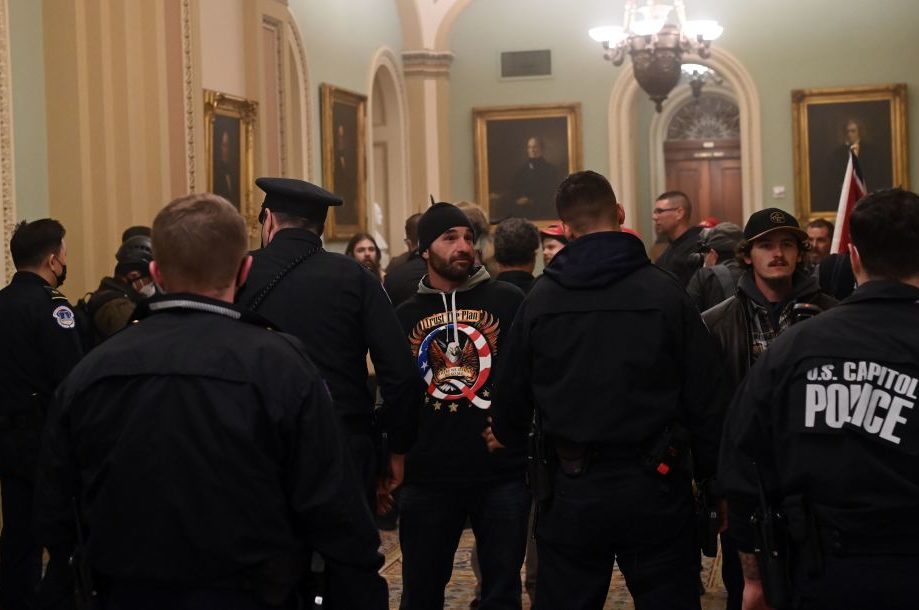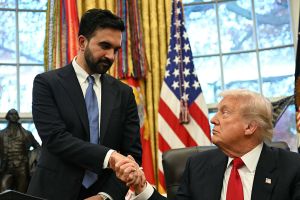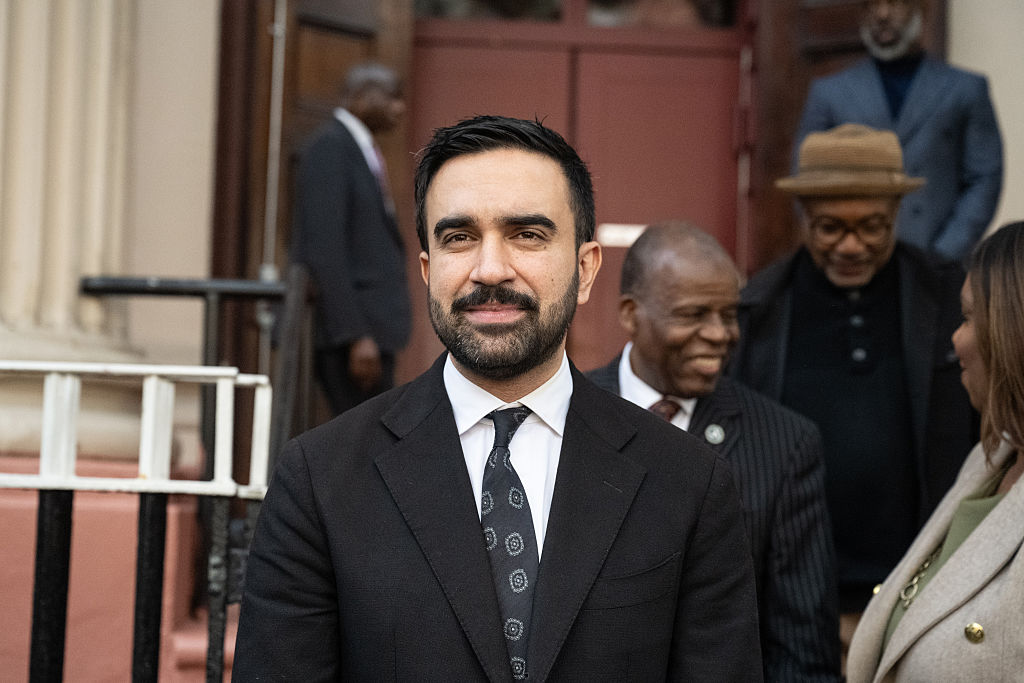The most poignant delusion of the QAnon subculture, as David Hines suggests, is not founded in paranoia but in blissful optimism: they believe that the US has been subverted by a cabal of Luciferian child molesters, yes, but they also believe that Donald Trump has been preparing to arrest the conspirators and restore freedom and righteousness.
This optimism rests on the presumption of Donald Trump’s unsurpassed genius. Even Republicans who are not explicitly supporters of QAnon have a tendency to attribute godlike powers to the President. Chris Zimmerman, chairman of the Nye County GOP, writes to his comrades:
‘We do well to remember that for more than four years Donald Trump has been five steps ahead of everyone in every attempt to derail him, impeach him, or confound him.’
You might think recent events have been evidence against this idealistic vision of the President. Not a bit of it. ‘Trump was late to his speaking engagement [at the protest],’ writes Zimmerman, ‘And then spoke on a number of rehashed things.’ So, what’s new? Well:
‘You see, if Trump had spoken on time and briefly, the MAGA crowd would have been at the Capitol building with the Antifa faction and likely would have been drawn into the fray by accident and confusion due to the crowd size. With Trump speaking late and long, the MAGA crowd was PROTECTED and SEPARATED from the Antifa groups. It would be very clear that the disguised antifa people were 95%+ of the people in the building.’
Set aside the fact that it is obviously bunkum that 95 percent of people in the Capitol were ‘Antifa’. Mr Zimmerman is asking us to believe that Trump knew antifa would attack the Capitol but decided that instead of warning his followers not to get involved, it would be a good idea to devise a secret and elaborate diversion technique. What kind of person would do that? Is it really more probable than the President ‘rehashing things’ because he is the kind of person who repeats himself?
As power slips away from President Trump, it is not surprising that his followers are creating arcane, expansive explanations for this unforeseen turn of events. If Trump is such a masterful and righteous figure, after all, then there are only two possibilities: that he has a grand yet secret scheme to reclaim power or that he is the victim of a devilish betrayal. The only remaining possibility is that their premise is mistaken. That is something people are desperately unwilling to accept.
What might be surprising is how deeply such ideas have spread. The downward spiral of the attorney L. Lin Wood is illustrative. Wood was a respected figure in right-wing politics on the back of such activities as representing the maligned Covington student Nicholas Sandmann. He became a pivotal figure in the ‘Stop the Steal’ movement and went flying merrily into the deep end when he insisted that Vice President Mike Pence had committed treason and would face a firing squad. Again, you cannot help but notice that the President’s most passionate supporters seem to indict rather than exculpate his leadership qualities. If Trump has surrounded himself with such shameless Brutuses, what does that say about his ability to be ‘five steps ahead of everyone’?
Now, I have no wish to engage in sweeping dismissals of ‘conspiracy theories’. The problem with the term is that people use it to end and not begin a conversation. Really, it is not a pejorative — like ‘lie’ or ‘error’ — which demands unqualified rejection. As I have said before, there are good conspiracy theories and bad conspiracy theories.
It’s also reasonable that right-wingers are feeling embattled as the President is effectively forced offline, right-wing platforms are denied the ability to exist and right-wing books are ejected from stores — censorious actions that never took place, to any extent, as rioting devastated American cities in the summer.
Still, that’s no excuse for being stupid. How can we tell the difference between bad conspiracy theories and good conspiracy theories? Granted, I’m hardly an epistemologist but I would focus on ‘C’s: credibility, corroboration and coherence.
Credibility? Well, do you have a reason to trust a person making a claim? When Jacob Wohl came out in 2019 to insist that he had found someone who had had an extramarital affair with Kamala Harris, for example, you could dismiss the allegation because Wohl had falsely accused more public figures of engaging in sexual misconduct than most of us have had cups of coffee. It was as if Jussie Smollett had come out again to claim that somebody had tied a noose around his neck — ‘for real this time!’
***
Get a digital subscription to The Spectator.
Try a month free, then just $3.99 a month
***
Secondly, corroboration: what evidence is there? How sound is it? Lin Wood audaciously suggested that the rioters were ‘antifa’ because one of them resembled a man who appeared in a photo that was captioned ‘Philly Antifa’. Now, the photo might have belonged to antifa but it did not show antifa. In fact, it showed the man stood next to the famous American white supremacist Matthew Heimbach. That is like someone taking a photo of Alexandria Ocasio-Cortez from a conservative website and presenting it as proof that she is a Republican.
Thirdly, coherence: does a theory make logical sense? Is it an elegant explanation of the facts? Of course some things in life are illogical, but others do not pass the smell test. I’m willing to believe that there were agents provocateurs in the crowd last week. It is possible. But to believe, as Zimmerman claims, that the rioters were ‘95% Antifa’, you have to believe that hundreds of highly trained left-wingers have been posing as conservatives with a long-term plan to risk their physical wellbeing to storm the Capitol, exposing their identities to the world, in the hope of making the President look bad. Does that sound more plausible than the idea that a protest made up of people who think the election was stolen got horribly out of hand when they approached the people they believe stole the election? Really?
Perhaps your answer is yes. That is your right of course. But while I will emphasize again that there is nothing inherently wrong about devising theories of conspiracy, I hope that people will be careful. Bogus ideas can be inflammatory, stirring up violence and setting people against each other within families and friendship groups. More than that though, they can be foolish. Ask the people who spent years insisting that President Trump was being blackmailed by Putin over an unsanitary sex tape. Have they come out of the last four years looking dignified? I don’t think so — and not because they are ‘conspiracy theorists’ as much as because they latched on to a particularly silly theory.

























